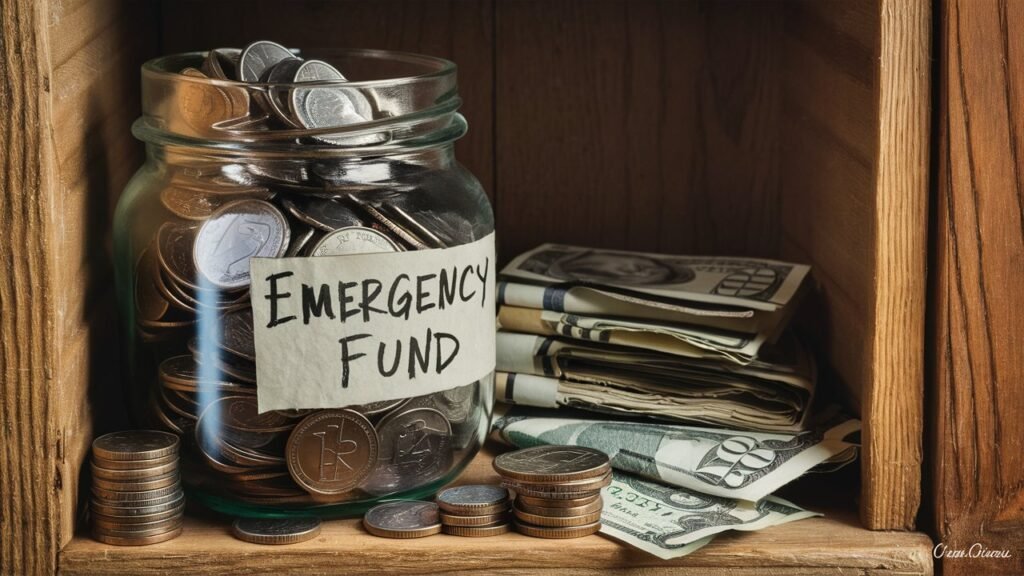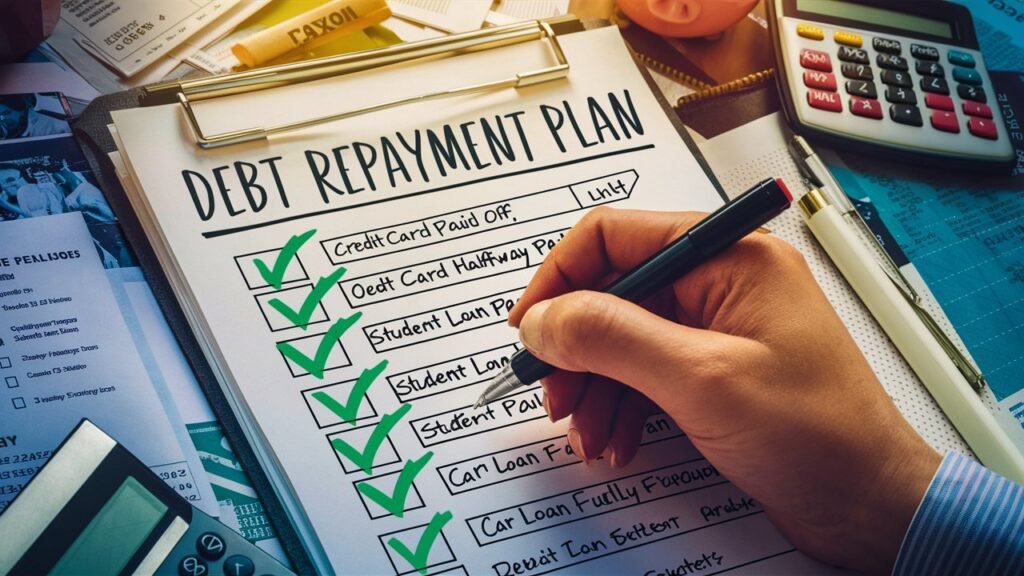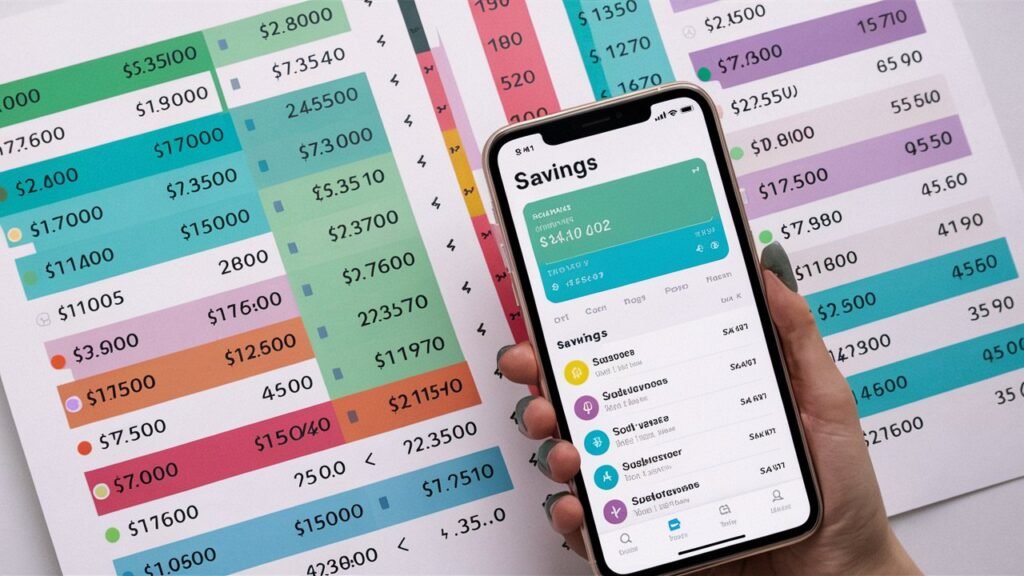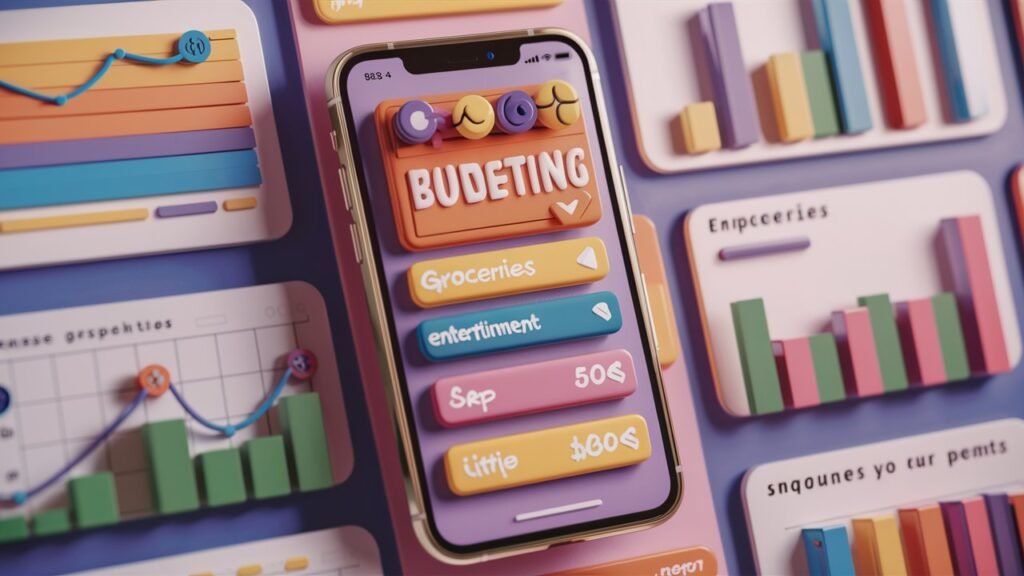Introduction: Why Financial Self-Care Matters
Financial self-care entails adopting good money habits that alleviate stress, build confidence, and support overall wellness. Self-care is not limited to spa days, candlelight dinners, or meditation, but includes taking control of your finances to carve out a life of stability and tranquility.
Financial stress is one of the main issues that hamper mental and physical wellbeing in this fast-paced world. Among other things, such tools give direction on how to achieve maintenance of debt control through long-term goal-setting practices.
This guide covers 10 essential financial self-care practices They are easy to implement and designed to create transformation that lasts. No matter if it is the beginning point for you or you’re looking to tweak your auto money management routines, these tips will give you the power to improve your relationship with money, thus mitigating anxiety for good!
1. Create a Monthly Budget
Budgeting is the first step toward managing your money. It lets you know how much money you have coming in, how much you spend, how to allocate money to things that need it, time of the year, and how to prepare for more demanding days and lower-income seasons later.
How to Build a Budget That Works:
- Use the 50/30/20 rule.
- 50% to essentials: things you must pay for (rent, utilities, groceries).
- 30% for discretionary spending: things for which you could cut back on if need be (e.g., dining out, hobbies).
- 20% to savings or debt repayment.
- Track your expenses on apps such as Mint or You Need a Budget, YNAB, or spreadsheets.
- Adjust your budget monthly for anything unexpected or a change of priorities..
Pro Tip: Keep it simple! It’s all about consistency, NOT perfection!
2. Set Financial Goals
When you set definite financial goals, you give a purpose to your money, which in turn will motivate you. These range from short-term achievements like saving for a vacation to long-term plans like retirement.
How to Set Effective Goals:
- Use the SMART :
- Specific: Clear expectations are provided (like saving $5,000 towards a down payment).
- Measurable: You can see your progress easily.
- Achievable: Make sure you can realistically attain them with your income.
- Relevant: It is consistent with your values.
- Time-bound: There is an endpoint
- Break bigger goals into bite-sized steps to keep your motivation levels up.

3. Build an Emergency Fund
An emergency fund serves as a financial safety net during unexpected incidents like medical emergencies or loss of employment.
How to Start Saving:
- Set a small target before developing a fund, e.g., $500-$1,000.
- Automate monthly transfers from your checking account to a high-yield savings account.
- Redirect money from expenses that aren’t really essential and anything from unused subscriptions.
Pro Tip: Allow yourself that time to save 3-6 months’ worth of your living expenses.

4. Schedule Regular Money Check-Ins
Consistency is paramount for the upkeep of financial health. Regular check-ins help you to stay up to date with your targets and adjust to changing circumstances.
How to Conduct a Money Check-In:
- Delegate 30 minutes in a month to review the previous month’s income, expenses, and whether you’ve achieved your goals.
- Use this time pending on helpful course correction: look at budgets that need to be changed, find areas that require improvement, and celebrate small victories!
- Use check-ins to keep a money journal on your progress and what areas need work.

5. Prioritize Debt Repayment
Though the difficulties presented by one’s debt may seem overwhelming, a structured repayment plan can lessen the burden.
Effective Strategies:
- Debt Snowball Method: Pay off the smallest debts first to gain psychological victories.
- Debt Avalanche Method: Pay off your high-interest rates first to minimize overall spending.
- Automate the repayment plan to avoid incurring penalties due to missed payments.
Pro Tip: Contact Creditors and Try to Negotiate for Lower Interest Rates or Payment Plans as Necessary.

6. Practice Mindful Spending
Mindful Spending means spending money consciously and deliberately, making sure it goes where it needs, according to the values and goals the individual has set.
How to Spend Intentionally:
- When one is planning to make a non-essential purchase, it is important to wait for 24 hours.
- Use information on spending habits to identify areas in need of improvement.
- Spend on experiences or items you will really enjoy and find valuable.
Pro Tip: Use the tool Pocket Guard to help track your spending limits.

7. Automate Your Finances
Therefore, automation simplifies money management in such a way that you are making steady progress toward your goals.
What to Automate:
- Bill Payments: You can avoid late fees and improve your credit report.
- Savings Contributions: Set up an automatic transfer from checking to savings or retirement accounts.
- Investments: Use apps such as Acorns or Betterment to invest regularly.

8. Invest in Financial Literacy
Financial literacy is the foundation of financial self-care. Understanding money management becomes a source of comfort and stress relief.
How to Get Started:
- Consider reading personal finance books like The Total Money Makeover by Dave Ramsey.
- Or listen to podcasts such as The Smart Passive Income Podcast.
- Take free courses via Coursera or Khan Academy.
9. Celebrate Small Wins
Appreciating progress, no matter how trivial, inspires motivation and prevents financial panic.
Examples of Wins to Celebrate:
- Paying off a $100 credit card balance.
- Saving an extra $100 in your emergency fund.
- Completing a month on budget.
Pro Tip: Pick a non-monitory reward, such as a day off for relaxation or a much-loved pastime.

10. Build a Healthy Relationship with Money
Your mindset and emotional health around money are very important for your financial self-care. Nurturing a healthy relationship will help you make better decisions with smaller guilt or fear attached.
Tips to Improve Your Money Mindset:
- Be grateful for anything you have.
- Instead of saying, I will never be able to save replace such statements with affirmations such as I am making progress.
- Seek therapy or financial coaching to explore deeply rooted beliefs around money.

FAQs About Financial Self-Care
1. What is financial self-care?
Financial self-care involves managing your money intentionally to reduce stress, achieve goals, and improve overall well-being.
2. How do I start financial self-care?
Begin with simple steps like creating a budget, setting small goals, or automating bill payments.
3. Can financial self-care help with anxiety?
Yes, managing your money effectively reduces uncertainty and provides a sense of control, which helps alleviate anxiety.
4. How much should I save for emergencies?
Aim for 3–6 months’ worth of living expenses, starting with smaller, achievable milestones like $1,000.
5. What tools can help with financial self-care?
Apps like Mint, Pocket Guard, and Betterment simplify budgeting, spending tracking, and investing.
Conclusion: Take Charge of Your Financial Self-Care Today
Financial self-care is about creating a balance between money management and emotional well-being. By adopting these 10 essential practices, you’ll not only reduce stress but also build confidence in your financial journey.
Remember, every small step counts. Whether it’s setting a goal, celebrating a win, or automating your finances, each action contributes to a healthier, more secure future.
CTA: Start your financial self-care journey today. Pick one practice, implement it, and watch how it transforms your relationship with money!




